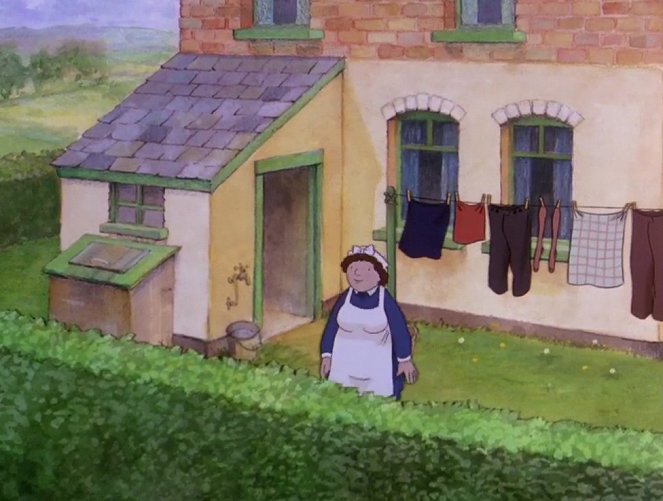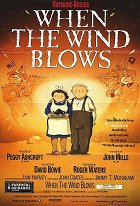Plots(1)
Jim and Hilda Bloggs (Sir John Mills and Dame Peggy Ashcroft) are a middle-aged couple, who believe that the British government is in control as they prepare for Nuclear War. When the countdown begins they roll up their shirtsleeves and follow government guidelines that were actually distributed to households around Britain in the 1970s. They paint their windows white, build a fortress of doors and pillows, take the washing in and put away two packets of ginger nuts, one tin of pineapple chunks and a good supply of tea. This cautionary tale is both humorous and macabre in its consideration of one of the most horrific possibilities of modern life. When the Wind Blows is a story about love, tenderness, humanity and hope. (British Film Institute (BFI))
(more)Reviews (1)
We can describe When the Wind Blows as Grave of the Fireflies with pensioners and a British temperament, which may give some vague idea of what to expect from the film, but it falls far short of describing its main qualities. The heart of the film is its premise based on the Raymond Briggs graphic novel of the same name, which deals with the themes of atomic warfare and nuclear holocaust through the lens of an ordinary retired couple living in the countryside, whose relationship has settled into the form of small rituals and accepted roles over their years of living together. These rituals and roles form the basis of their immediate response to the threat, which is so devastating that the characters cannot comprehend it in all its severity. In terms of concept, we can actually describe When the Wind Blows as an anti-war farce in which the traditional image of nuclear war is deconstructed by the ordinariness and humanity of the central pair of old-fashioned pensioners, who constantly and naïvely compare the new war with the one that they had survived and bounced back from in accordance with the dominant ideology. Nevertheless, bitter and depressing tones eventually begin to pierce the levity as the first signs of the direction that the old man’s fate will take start to come into focus. Even so, the film never superficially plays on emotions; rather, its impact is derived from contrasts and the viewer’s awareness of the consequences of things that the characters do not understand or do not want to admit.
()
Gallery (14)
Photo © British Screen Productions

